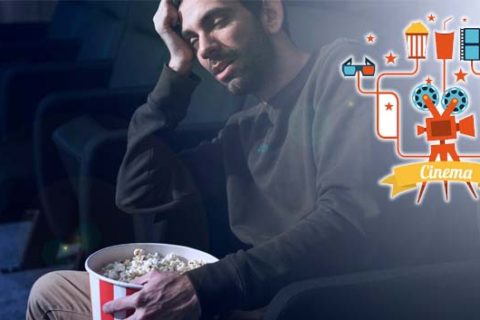In our daily life, we may have feelings, thoughts, impulses, and memories that are difficult to face. When we are going through feelings that are difficult to express, many people rely on defense mechanisms. Subconsciously, our psychological responses activate self-defense mechanisms to protect us from feelings of anxiety, threats to our self-confidence, and things that we do not want to deal with or think about (Cramer, 2015).
In psychoanalytic therapy, the term was firstly used, but then it started to appear in our daily language. Denial is one of the examples of ego defense mechanisms.
What Is a Defense Mechanism?
Defense mechanisms are tactics developed by the ego to protect against anxiety (Waqas et al., 2015). Often, Sigmund Freud used the term in psychoanalytic theory. In the example, defense mechanisms are thoughts that try to prevent inappropriate or unwanted ideas from entering our consciousness.
How Do Defense Mechanisms Work?
In Sigmund Freud’s model of personality, the ego is the aspect of personality that faces reality. In this situation, the ego needs to overcome the conflicting demands of the id and the superego.
-
- Id: This is an aspect of personality that tries to fulfill desires, needs, and impulses. The id is able to be attributed as the most basic and primitive part of all of our personalities that does not attach importance to social decency, morals, and realities that exist when fulfilling our needs and desires.
- Superego: This is part of the personality that seeks the ego to act in an idealistic way and have moral value. Superego is formed from morals that have been internalized and is based on the values that we have acquired through family, other family members, religious influences, and society.
Waqas et al. (2015) states that to deal with anxiety, Freud believes that ego defense mechanisms help to protect the ego from conflicts created by the id, superego, and reality. You may wonder what will happen if the ego is not able to overcome the demands of our desires, the compulsions given by reality, and our moral standards.
According to Freud, anxiety is an unpleasant state of mind that causes a lot of people to avoid it. This anxiety acts as a signal to the ego that something is wrong. As a result, the ego releases defense mechanisms to help reduce these feelings of anxiety (Waqas et al., 2015).
10 Types of Defense Mechanism That Are Often Used
Below, you are able to read 10 defense mechanisms that are often used by humans unconsciously.
-
- Denial
Denial is the ego defense mechanism that happens when we deny to accept the reality or facts. In this situation, we block the event from our mind so that we will not face the emotional impact of the event. It means that we avoid realities that actually have been aware of by other people.
-
- Repression
If you have bad thoughts, memories, or beliefs about the past, it may be able to bother you. Instead of facing it, subconsciously we may choose to hide it in hope of forgetting them completely.
Even though the memories have been completely lost, but there is the possibility that it may be able to affect our behavior and it can impact our future relationship with other people.
-
- Projection
Have you had disturbing feelings or thoughts towards a specific person? In a certain case, when humans have these feelings, they project their feelings to be the opposite. For example, you do not like your new friend. Instead of accepting the fact that you do not like the person, you choose to tell yourself that your new friend does not like you.
-
- Displacement
Let’s say that you channel your intense feelings of emotion and frustration to someone or something that does not have a negative impact on you. If you do that, it can fulfill your impulses to react without having to take heavy risks. For example, you scold your sister because you had a bad day because you have been scolded by your teacher for not being able to answer a question. From this example, you are able to see that your sister is not the main reason why your day was bad. However, when you scold your sister, it does not make the situation more tense than scolding directly to your teacher.
-
- Regression
Some people, when they feel threatened or agitated, subconsciously may run away in the same way they behaved as a child. When people are traumatized or lost, some of them may act like they did when they were kids. When adults have difficulty in facing an event or behavior, they may likely to eat or smoke more or even become verbally abusive.
-
- Rationalization
We will feel more comfortable when we try to explain undesirable behavior with an idea of fact that we create ourselves. Even though, consciously, we know that the undesirable behavior is not right.
-
- Sublimation
This is self-defense which is positive enough. It is because the person who carries out the mechanism chooses to channel their strong emotions or feelings to objects or activities that are safe and appropriate. For example, you choose to exercise after you have a frustrating day.
-
- Reaction Formation
Reaction formation means that you change the feelings that you know to be the opposite. For example, when you are experiencing frustration, you prefer to react in an overly positive way.
-
- Compartmentalization
It is separating existing life in various sectors to protect other sectors. For example, when you experience personal problems in life, you try to cover them from the work environment so that you do not need to feel anxious or depressed when you are in the work environment.
-
- Intellectualization
If you have an intellectualization mechanism, when you are going through a difficult time, you tend to think about the event by understanding and studying the event. This mechanism enables you to avoid thinking related to stressful situations from the emotional aspect and try to focus on the intellectual component or provide knowledge to the individual.
Well, that’s all the explanation about 10 ego defense mechanisms in humans and it is important for you to note that this writing is based on an article written by Adrian Suwondo on Kampus Psikologi site. Thank you for reading this and hopefully you get more insights after reading this.

A bookworm and researcher especially related to law and citizenship education. I spend time every day in front of the internet and the campus library.





